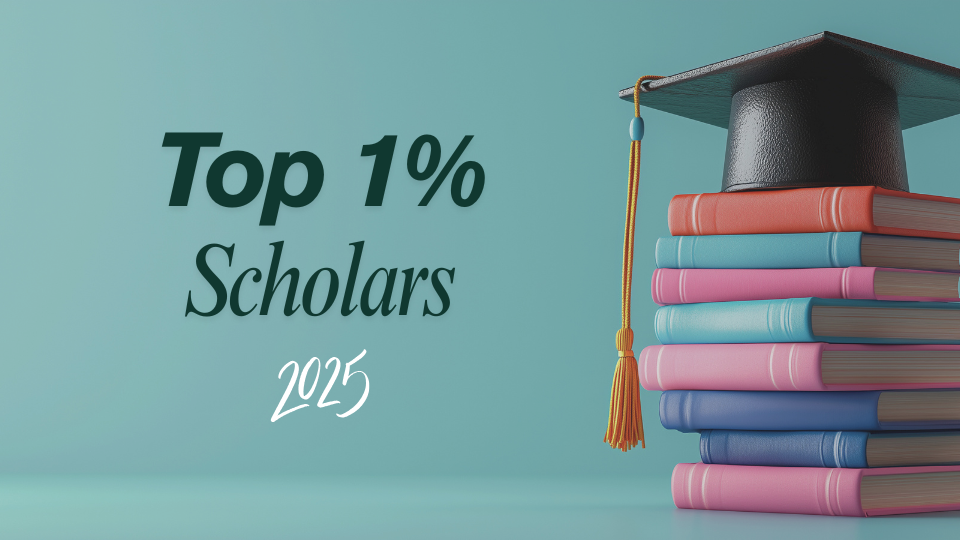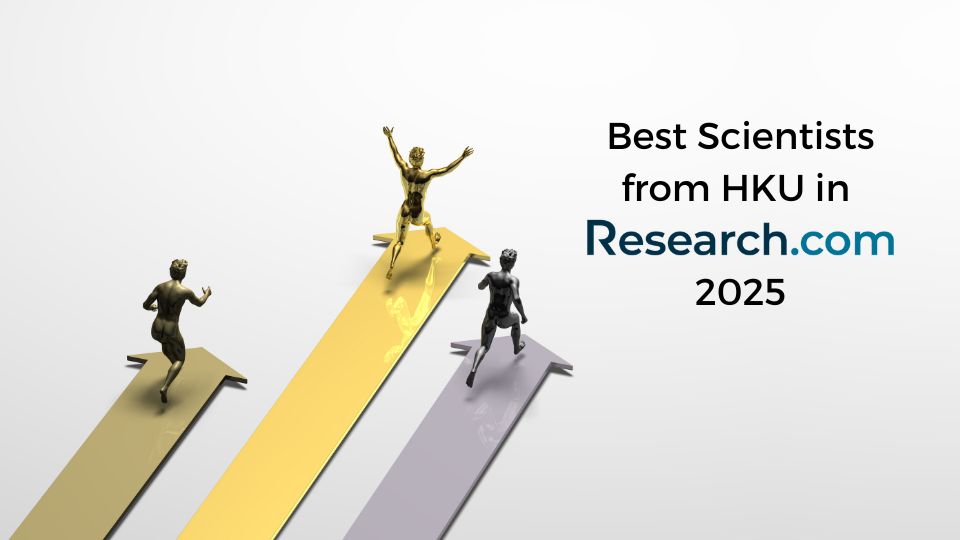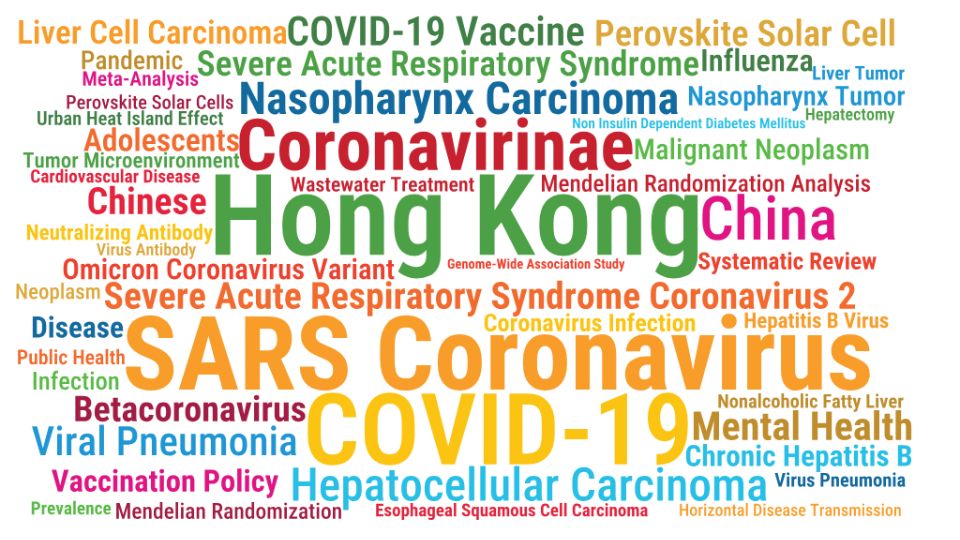Tag: HKU Research

HKU Research in the first half of 2020s: An SDG Perspective
— by Christina Wong Introduction The University of Hong Kong continues to advance research that aligns with the United Nations Sustainable Development Goals (SDGs). Given the absence of SDG 17 (Partnerships of the Goals) in Elsevier’s (2024) index due to the difficulty of classification, this article explores insights from bibliometric data of HKU’s scholarly outputs…
Read More
HKU Shines in Stanford’s 2025 World’s Top 2% Scientists List
— by Yining Huang, Ollie Zhang, Stella Chow Stanford University released the latest World’s Top 2% Scientists list in mid‑September 2025, recognizing leading researchers worldwide. The ranking is presented in two complementary views: a career‑long assessment that captures cumulative influence from 1960–2024 and a single recent year view that measures research influence during 2024. Together,…
Read More
Top 1% Scholars by Essential Science Indicators at the University of Hong Kong 2025
— by Chloe Ng Each year since 2009, the Libraries has published a list of the top 1% researchers worldwide by citations in at least one of the 22 research fields at the University of Hong Kong (HKU), based on Essential Science Indicators (ESI) data released by Clarivate. In 2025, the University counted a record-high…
Read More
Best Scientists from HKU in Research.com 2025
— by Zesen Gao The University of Hong Kong (HKU) continues to be home to distinguished scholars and researchers excelling across diverse fields. Following our previous blog post, this update provides insights based on the latest available data retrieved from the platform. Research.com’s Best Scientists rankings cover 26 disciplines, utilizing data from sources like OpenAlex…
Read More
In the Front of Research: Newly Emerged Topics for 2024 and HKU Contributions
— by Vivian Qiu 1. Introduction 1) Research fronts A research front can be conceptualized as the convergence of scientific discoveries and societal interests, with new findings leading to further discoveries [1]. Understanding research fronts can help researchers identify key areas for future exploration, thereby enhance the capability of researchers to contribute meaningfully to their disciplines and…
Read More
Research Impact beyond the Academia 2: Policy Citations
— by Chloe Ng In the previous post, we discussed the use of patent citations as alternative metrics to measure research impact beyond academia. In this post, we will focus on policy citations, which try to showcase the impact of research on policy, law and regulation. Policy Metrics Policy documents refer to documents prepared by…
Read More
Research Impact beyond the Academia 1: Patent Citations
— by Chloe Ng Introduction Citation metrics, which measure the number of citations a publication receives from other scholarly publications, are commonly used as indicators of research performance. However, these metrics often fall short in capturing the broader societal impacts of research. This blog post explores alternative indicators of impact, providing insights from patent citations…
Read More
Mega Journals 2: Promising or Predatory?
— by Fanny Liu Introduction In the previous post, we discussed major characteristics and the niche of mega journals, such as open access, wider scope, soundness only peer-review and higher acceptance rates. In this post, we will focus on some controversies. Concerns “Soundness-only” peer review: Yet to be defined? Senior executives and editors of mega…
Read More
Mega Journals 1: Inception and Ideal
— by Fanny Liu Introduction Since the establishment of PLOS ONE in 2006, a number of mega journals emerged, such as BMJ Open, IEEE Access, PeerJ, Scientific Reports, and more. While mega journals have secured a niche in scholarly publishing, there are also concerns and controversies. Characteristics Mega journals have some major characteristics (Björk, 2021;…
Read More
Viewing HKU Research Through the SDG Lens
— by Chloe Ng Continuing from our previous blog posts1 in presenting HKU’s research contributions to the Sustainable Development Goals (SDGs), this year’s post tracks HKU research performance across the 16 SDGs2 during 2019-20243, and explore changes in individual SDGs and topics over time. HKU Publications Contributing to Sustainable Development Of the 48,284 scholarly outputs…
Read More